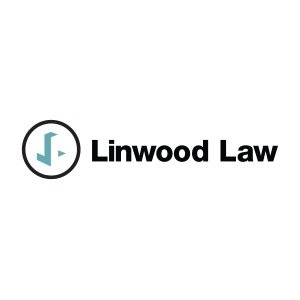Best Adoption Lawyers in Christchurch
Share your needs with us, get contacted by law firms.
Free. Takes 2 min.
Free Guide to Hiring a Family Lawyer
List of the best lawyers in Christchurch, New Zealand
About Adoption Law in Christchurch, New Zealand
Adoption in Christchurch, like in the rest of New Zealand, is governed by the Adoption Act 1955 and the Adult Adoption Information Act 1985. The laws define who can adopt, who can be adopted, and the legal consequences arising from adoption. Modifications in the adopted child's legal relationships, parental responsibilities, and inheritance rights are all part of the law's scope. Adoption in New Zealand is guided by the principle of ensuring the welfare and best interests of the child.
Why You May Need a Lawyer
Navigating adoption laws can be complex and overwhelming without professional help. An adoption lawyer can guide you through the process, ensuring that all legal requirements are met. They can help with understanding your rights and responsibilities as adoptive parents, navigating the consent process, and dealing with contested adoptions. Additionally, they can offer advice about special circumstances such as international adoptions or adoption by step-parents or relatives.
Local Laws Overview
The Adoption Act 1955 stipulates that all adoptions must be in the best interest of the child. Persons under the age of 20 can be adopted, with all birth parent rights transferring to the adoptive parents. For an adoption to be legal, a social worker must carry out an intensive investigation and report, and the Family Court has to make an adoption order. Recognising the importance of children retaining their identity, information about the child’s birth parents will not be erased or replaced post-adoption.
Frequently Asked Questions
Who can adopt a child in Christchurch?
Individuals or couples, regardless of sexual orientation, can adopt. Specifically, persons above 25 years old, or the partner of a birth parent, regardless of their age, are eligible to adopt.
Who has to give consent for an adoption?
Every guardian of the child who is being put up for adoption, the spouse of the adoptive parent, and the child if he or she is over the age of 15, all need to provide their consent.
What if the birth parents disagree with the adoption?
If a birth parent or guardian refuses consent, soliciting legal advice is advisable as an application to the Family Court can be made to dispense with their consent.
How long is the adoption process?
The length of the adoption procedure can vary greatly depending on the individual circumstances. It can take several months to over a year due to requirements such as home studies, court approval and consolidation periods.
Can I adopt from overseas?
Yes, international adoptions are allowed in New Zealand. However, they have additional requirements, so legal assistance should be sought early in the process.
Additional Resources
The Ministry of Social Development's website provides helpful information on adoption and the processes involved. New Zealand's Oranga Tamariki-Ministry for Children is the primary body dealing with child welfare and adoption matters. Several nonprofit organizations and support groups also provide resources and support for prospective adoptive parents.
Next Steps
If you're considering adoption and need legal advice, start by contacting a legal professional specializing in adoption matters. Ensure you have a detailed understanding of your situation and be prepared with any questions you may have. Clear, open communication with your lawyer can significantly ease your adoption process and ensure that it proceeds in the child’s best interests.
Lawzana helps you find the best lawyers and law firms in Christchurch through a curated and pre-screened list of qualified legal professionals. Our platform offers rankings and detailed profiles of attorneys and law firms, allowing you to compare based on practice areas, including Adoption, experience, and client feedback.
Each profile includes a description of the firm's areas of practice, client reviews, team members and partners, year of establishment, spoken languages, office locations, contact information, social media presence, and any published articles or resources. Most firms on our platform speak English and are experienced in both local and international legal matters.
Get a quote from top-rated law firms in Christchurch, New Zealand — quickly, securely, and without unnecessary hassle.
Disclaimer:
The information provided on this page is for general informational purposes only and does not constitute legal advice. While we strive to ensure the accuracy and relevance of the content, legal information may change over time, and interpretations of the law can vary. You should always consult with a qualified legal professional for advice specific to your situation.
We disclaim all liability for actions taken or not taken based on the content of this page. If you believe any information is incorrect or outdated, please contact us, and we will review and update it where appropriate.

















